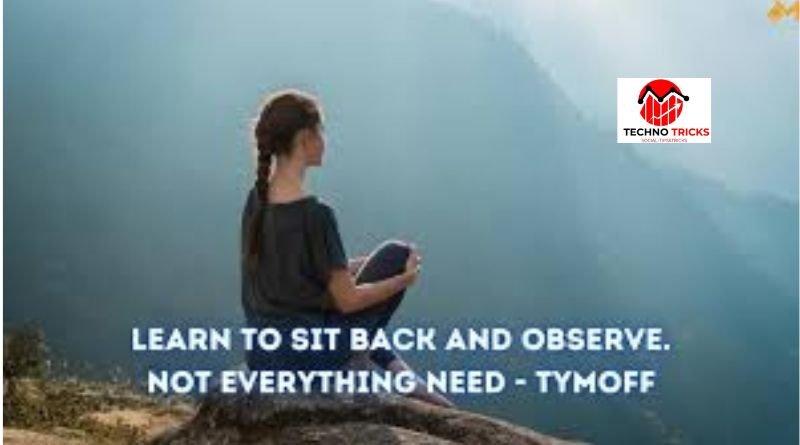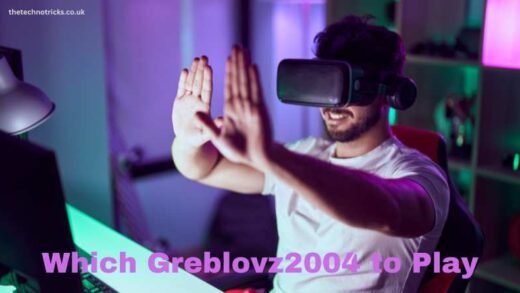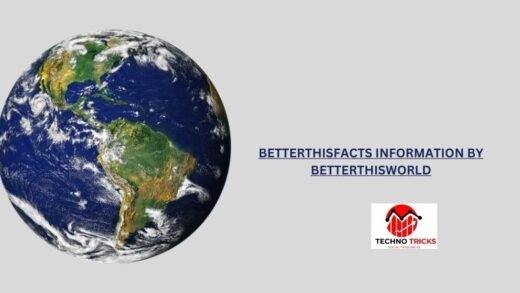Learn to sit back and observe. not everything need – tymoff: Not Everything Needs Your Immediate Action
In today’s fast-paced world, we are often pressured to react quickly, make swift decisions, and stay constantly engaged with everything around us. However, there is an understated power in simply sitting back and observing. This concept, emphasized by the phrase “learn to sit back and observe. not everything need – tymoff” is particularly crucial in cultivating mindfulness, improving decision-making, and reducing unnecessary stress. In this article, we will explore how adopting this philosophy can bring immense benefits to our lives, both personally and professionally.
The Art of Sitting Back: What Does It Mean?
When we talk about “sitting back and observing,” we are not advocating for complacency or passivity. Instead, this phrase refers to the practice of mindfulness and self-restraint. It’s about resisting the impulse to react immediately to every situation, conversation, or emotion. By taking a step back, we allow ourselves the space to reflect, process information, and respond more thoughtfully.
In our culture, where instant gratification is often celebrated, the idea of sitting back can seem counterintuitive. Yet, there is immense power in observation. Observing the actions, behaviors, and emotions of others, as well as our own, can offer valuable insights that we might otherwise miss if we’re constantly in “reaction mode.” This thoughtful approach encourages introspection and allows us to make more informed decisions.
Not Everything Needs Immediate Action
The second half of the phrase, “not everything needs your immediate action,” highlights a critical truth: not every situation requires an instant response. In fact, responding too quickly can sometimes make things worse. When we rush to act, we risk acting on incomplete information, misreading situations, or letting our emotions get the best of us.
Consider how often we encounter scenarios that trigger immediate reactions—whether it’s an inflammatory social media post, a stressful work email, or a heated conversation with a friend or family member. In these moments, the natural inclination might be to respond instantly, either to defend ourselves or assert our opinions. However, by taking a moment to sit back and observe, we give ourselves the opportunity to approach the situation with a clear mind and a more balanced perspective.
Emotional Intelligence and the Power of Observation
One of the key benefits of learning to observe rather than react immediately is the enhancement of emotional intelligence. Emotional intelligence, or the ability to recognize, understand, and manage our own emotions and those of others, plays a crucial role in personal and professional success. Sitting back and observing enables us to practice emotional regulation, a core component of emotional intelligence.
When we take the time to observe, we are better able to understand the emotions driving our actions and reactions. For instance, when faced with a stressful situation, sitting back allows us to acknowledge the anxiety or frustration we might be feeling. Rather than allowing those emotions to dictate our response, we can take a more measured approach. This not only prevents us from making hasty decisions we might later regret, but also helps us to communicate more effectively and empathetically with others.
Moreover, by observing others, we can gain insights into their emotional states, motivations, and thought processes. This can enhance our ability to empathize and build stronger, more constructive relationships, both personally and professionally.
The Role of Patience in Observation
Patience is an essential skill when it comes to sitting back and observing. In a world where everything seems to be moving at breakneck speed, cultivating patience can feel like a superpower. Patience allows us to wait for the right moment to act, rather than rushing into decisions or actions out of a sense of urgency or pressure.
When we are patient, we are better able to assess the situation from a broader perspective. We can evaluate the potential consequences of our actions, consider alternative solutions, and weigh the long-term benefits and drawbacks. Patience also helps us to avoid unnecessary conflicts or misunderstandings that might arise from hasty decisions.
By learning to be patient and practicing the art of observation, we can approach challenges and opportunities with a calm and composed mindset, which is often more effective than reacting impulsively.
Mindfulness and Stress Reduction
Another significant benefit of sitting back and observing is its impact on stress reduction. When we constantly feel the need to react and respond to every situation immediately, we place a tremendous amount of pressure on ourselves. This can lead to chronic stress, which negatively affects both our physical and mental health.
Mindfulness, or the practice of being present and fully engaged in the moment, is closely linked to the concept of sitting back and observing. Mindfulness encourages us to slow down, take a deep breath, and focus on the present rather than becoming overwhelmed by past events or future anxieties.
By adopting a mindful approach, we can reduce stress levels and improve our overall well-being. Sitting back and observing allows us to let go of the need to control every outcome and instead focus on what we can control—our thoughts, emotions, and actions. This shift in mindset helps to create a sense of inner peace and balance.
The Importance of Thoughtful Decision-Making
Learning to sit back and observe is also crucial for thoughtful decision-making. When we rush into decisions, we often do so based on incomplete information or emotional impulses. However, by taking the time to observe and reflect, we can gather more information, consider multiple perspectives, and make more informed choices.
In both personal and professional contexts, thoughtful decision-making can lead to better outcomes. For example, in the workplace, leaders who take the time to observe their team’s dynamics and performance are better equipped to make decisions that support their team’s growth and productivity. Similarly, in personal relationships, individuals who practice observation and patience are more likely to make decisions that foster understanding and connection, rather than conflict.
How to Practice Sitting Back and Observing
Incorporating the practice of sitting back and observing into your daily life requires intention and mindfulness. Here are a few practical tips to help you get started:
- Pause Before Reacting: The next time you’re faced with a situation that elicits a strong emotional response, take a deep breath and pause before reacting. This brief moment of reflection can make a significant difference in how you respond.
- Engage in Mindfulness Practices: Mindfulness techniques, such as meditation, deep breathing, or journaling, can help you develop the habit of observing your thoughts and emotions without judgment.
- Ask Questions Before Acting: Instead of jumping to conclusions or reacting impulsively, ask yourself questions such as, “What is the bigger picture here?” or “How will my response affect the situation in the long run?”
- Cultivate Patience: Patience is a skill that can be developed with practice. Start by giving yourself permission to take your time with decisions and actions, rather than feeling pressured to respond immediately.
- Reflect on Past Experiences: Look back on situations where you reacted impulsively and consider how the outcome might have been different if you had taken the time to sit back and observe. Use these reflections as learning experiences.
Conclusion
In a world that often glorifies speed and immediacy, learning to sit back and observe is a powerful practice that can enhance our emotional intelligence, reduce stress, and lead to more thoughtful decision-making. Not everything requires our immediate attention or action. By cultivating patience, mindfulness, and observation, we can navigate life’s challenges with greater clarity, balance, and peace. Embrace the power of sitting back, and you may find that you not only make better decisions, but also enjoy a richer, more meaningful experience of life.
This mindset, as encapsulated by the phrase “learn to sit back and observe. not everything need – tymoff” offers a valuable reminder to slow down, reflect, and act with intention.
Read also; check




